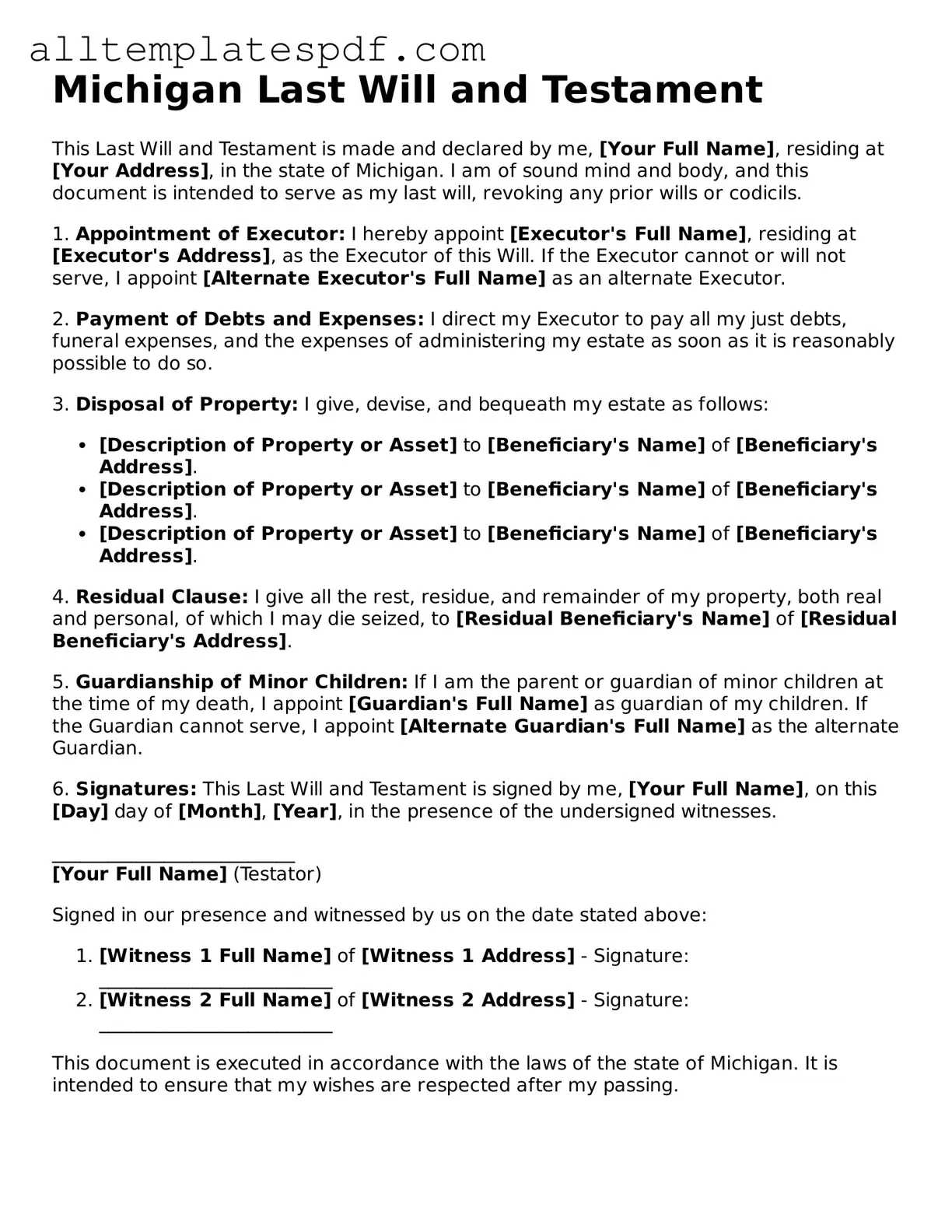Blank Last Will and Testament Template for the State of Michigan
A Michigan Last Will and Testament form is a legal document that outlines how a person's assets will be distributed after their death. This form ensures that your wishes are respected and provides clarity to your loved ones during a difficult time. Ready to take the next step? Fill out the form by clicking the button below.
Open Editor

Blank Last Will and Testament Template for the State of Michigan
Open Editor
Fast and easy form completion
Complete Last Will and Testament digitally — fast and easy.
Open Editor
or
↓ Last Will and Testament PDF Form
